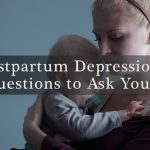Anxiety is a feeling of worry, fear, and unease. It affects the body as well as the mind. Anxiety disorders are the most common mental illnesses in the United States and affect 40 million adults age 18 or older (18% of U.S. adults). McAllen anxiety is characterized by various overwhelming feelings and behaviors that can be disabling if left untreated, including panic attacks, phobias, obsessions, compulsions, and extreme avoidance of certain situations or activities.
Here are the causes of anxiety
What are the causes of anxiety?
Trauma: The causes of anxiety can vary widely, but most cases can be traced back to some form of trauma. If you are feeling anxious about something in your life, chances are you have experienced a traumatic event or events in the past.
Trauma doesn’t have to be a single defining moment like a car accident or an assault. Most people who suffer from anxiety have experienced multiple smaller traumas throughout their lives. These moments may not have seemed like much at the time, but they add up and eventually take a toll on our emotional health.
Stress: Stress is one of the key causes of anxiety, but there are other causes as well. Some people may develop an anxiety disorder after having a traumatic experience, while others may be born with a chemical imbalance that makes them more anxious than others.
Biological factors: These include genetics and neurology. Genetically-influenced factors may include the tendency to have a high level of activity in the parts of the brain responsible for fear reactions and a low level of activity in the parts of the brain responsible for calming those reactions. These tendencies are determined by genes and can be activated by environmental influences throughout childhood.
Neurological factors also play a role in anxiety disorders- certain chemicals and hormones present during times of stress can influence how certain areas of the brain respond to fear stimuli, which then contributes to an increased risk of developing an anxiety disorder.
What are the symptoms of anxiety?
The symptoms of an anxiety disorder vary depending on which one you have, but they can include the following:
- Uncontrollable worry or tension
- Restlessness
- An inability to relax or calm down
- Nausea or other physical symptoms such as shaking, muscle tension, headaches
- Insomnia or trouble sleeping
- Paranoia
What is the best treatment for anxiety?
Anxiety treatment is highly individualized. Treatment often depends on the type or types of anxiety being experienced. For example, someone suffering from panic attacks will have different treatment options than someone with social phobia.
Treatment can also depend on whether your anxiety is situational or generalized. Situational anxiety refers to occasional bouts of worry, stress, and nervousness that are usually linked to specific events in your life. A situational anxiety disorder is characterized by persistent anxiety resulting from living with a stressful situation or event. On the other hand, generalized anxiety disorder (GAD) is characterized by persistent and pervasive feelings of worry and apprehension that are not always connected to anything specific.
Anxiety treatment may involve therapy to help you better manage your responses to these feelings and medications that affect how certain neurotransmitters function in the brain.
Anxiety is the feeling of fear or apprehension that is characterized by physical and psychological symptoms. Anxiety disorder has a negative impact on one’s daily life, as the individual may have difficulty functioning in social and professional settings. It might be nothing to worry about if you experience occasional bouts of worry or nervousness. However, if your anxiety interferes with your ability to live your life as you would like, contact Nova Vita Wellness Center professionals for help.











